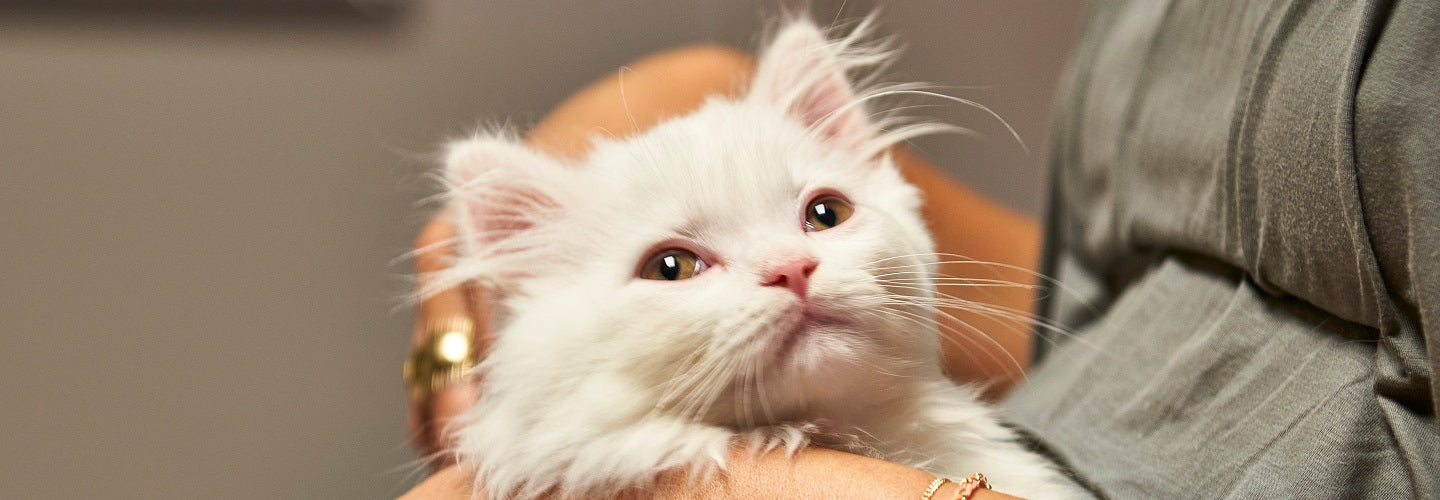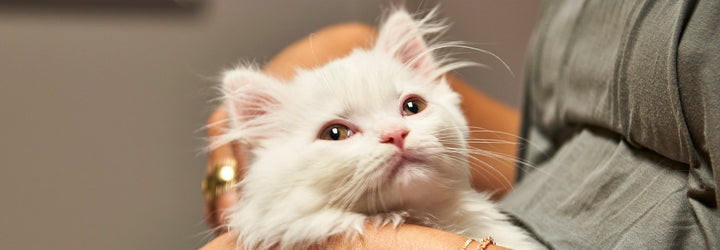

Posted by Emma Oldroyd, on
Kitten's First Vet Visit: What To Expect
When it comes to welcoming a new kitten into your home, it’s important to make sure they’re in good health ready to start their journey with your family. We’ve popped together a short guide on your kitten’s first vet visit, so you know what to expect, and how to help make it a positive experience for your kitten!

When should I take my kitten to the vet?
We recommend booking their first appointment within a few days of bringing your new kitten home. This way if there are any health issues, they can be caught early, and you can liaise with either your breeder or rescue centre.
The sooner your kitten visit the vets, the sooner they get used to it so when it comes to regular check-ups your kitten will be more relaxed.
What happens during my kitten’s first vet visit?
Their first vet visit will involve paperwork! So be prepared for that, we recommend taking someone with you to help keep your kitten occupied whilst you’re doing admin.
Your vet will perform a thorough examination of your kitten which will include:
- Checking their eyes, ears and teeth
- Checking their skin for any unusual blemishes or fleas and ticks
- Checking their abdomen for detectable abnormalities or if they’re in visible pain
- Checking for any irregular heart rhythms or murmurs
- Checking their lungs
- Checking their joints for normal flexibility
- Discussing their vaccination schedule
- Discussing neutering options
- Establishing a flea, tick and worming schedule
- Discussing microchipping
Having your kitten regularly vaccinated will help to prevent them from contracting nasty diseases that can sometimes be fatal. Your first vet visit at around nine weeks, is often when their first course of vaccinations are given. You should then book in for a return visit around three to four weeks later for follow up injections.
You can also speak to your vet about microchipping- if your kitten isn’t already microchipped, by law you should ensure your kitten has an up-to-date microchip before they’re 20 weeks old.
How do I help prepare my kitten for their first vet visit?
There are a number of steps you can take to ensure your kitten has a positive experience at the vets. Firstly, transport them in their carrier with familiar items such as a blanket, their favourite toy- or even treats! (if your kitten isn’t used to a carrier- we suggest introducing it a few days before your trip)
When you arrive at the vets- if the waiting room is a ‘mixed pet’ area, try and sit away from barking dogs and ensure your kitten can’t make eye contact with other cats. We would recommend taking a blanket to put over your cat carrier to help your kitten feel safer.
If the waiting room is very busy- we would recommend waiting outside or in your car until it’s time for the vet to see your kitten.
Take treats! Build that positive association with the vets from the start, they will also help coax your kitten into their carrier.
How much does it cost to take a kitten to the vet?
This will depend on your kitten and your veterinary surgery. Having your kitten insured when you bring them home can help with all vet costs, including regular check-ups.
